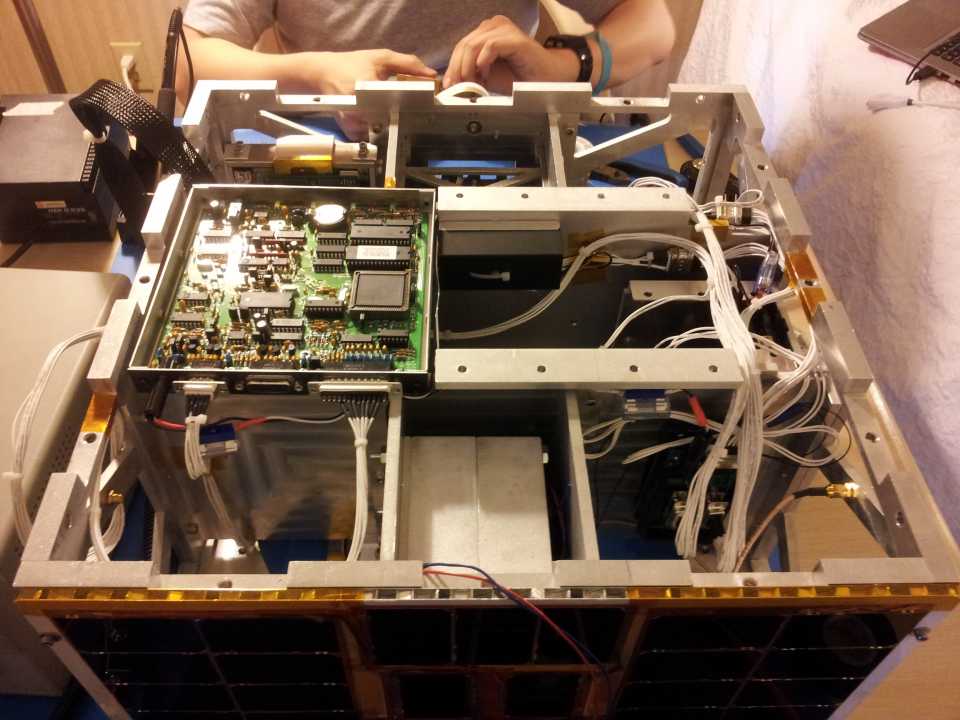Tech may soon be launching its first, in-house developed satellite into outer space.
Earlier this month, a team of over 60 undergraduate and graduate students in the AE department won first place for their microsatellite, Prox-1, in the University Nanosatellite Program (UNP). The result of a Senior Design class and undergraduate research, Prox-1 will be launched into space from the Air Force Research Laboratory in 2015.
The students were in control of the entire process, from the original design to making the satellite flight ready. On average, they would work from two to four hours a week, though in “crunch times” students could be expected to work upwards of 40 hours a week.
“You’d be surprised how comfortable two chairs pulled together like a bed in a lab can be,” said Prox-1 Project Manager and fifth-year AE student Kiichiro Deluca.
“Seeing the progress the students made and how the satellite brought them together was the most rewarding part of the Prox-1 project”
The Prox-1 project was particularly ambitious because of its size compared to other universities satellites. Most universities build 10x10x30 cm satellites, while Prox-1 was 40x40x27 cm, or about the size of a coffee table.
“Seeing the progress the students made and how the satellite brought them together was the most rewarding part of the Prox-1 project,” said principal investigator Professor David Spencer.
The Prox-1 microsatellite’s primary mission is to carry out automated proximity operations. Two spacecraft will be launched, a 50 kg satellite and a 10 kg satellite known as a Cube Sat, which will contain solar sail technology to be analyzed for further research.
Microsatellites have a promising future in both the military and private sector. Because they are unmanned, the satellites can be used for servicing and inspection in space. Also, because of their compact size, they take less time to build and have lower costs.
Presently, the Prox-1 team is refining the microsatellite for the launch. Prox-1 is expected to be flight-ready and meet the Air Force’s standards for spaceflight hardware and documentation.
“…it was a dream come true just putting something up into space; it was what I had always aspired for”
“Building a satellite was the easy part, managing the people and orchestrating their efforts was the hard part,” Deluca said.
The competition is administered by the Air Force Research Laboratory, Air Force Office of Scientific Research and the American Institute of Aeronautics and Astronautics. UNP cycles every two years, and participants from universities across America design, build and test satellites.
The Prox-1 team hopes that Tech will eventually become a powerhouse in developing and launching small spacecraft. They also hope that other universities and companies will turn to Tech to work on and learn about microsatellites.
“At the end of the day, it was a dream come true just putting something up into space; it was what I had always aspired for,” Deluca said.
